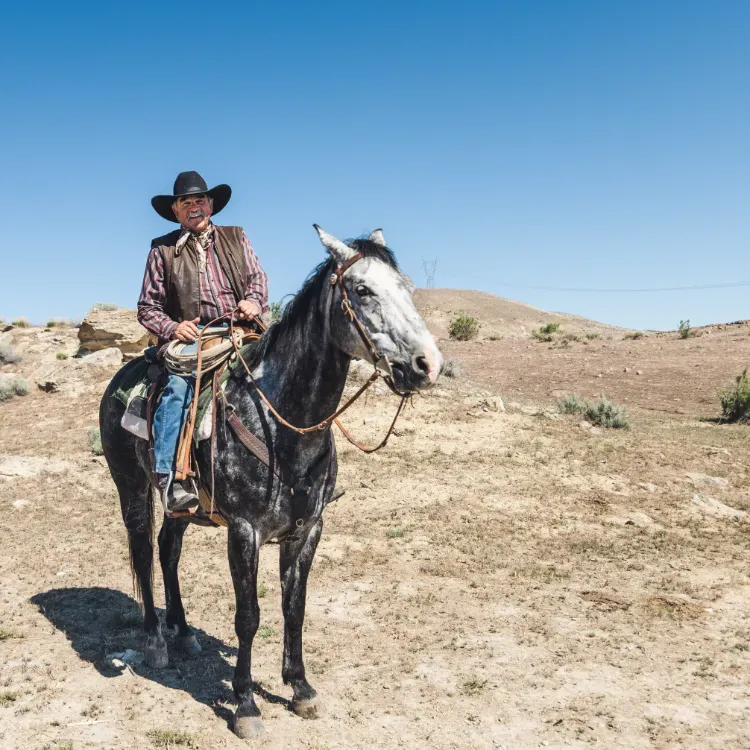
People are generally far heavier than 40 years ago. Any horses must be kept slim for meaningful ridden activities. A horse carrying a heavy rider absolutely must not carry excess body weight.
Pick a Horse that will carry your Weight
For most people, this does not mean a draft horse breed. However, your horse’s frame size and conformation must meet your requirement. For more about this go to the Rideout article shown here.

Article Suggestion
Debunking the 20% Rider Weight Rule for Horse RidingWhy a Riding Horse needs to be Slim
Unless a horse is underweight and carries low body fat he does not need to gain weight by increasing his body fat. Excess fat will compromise a horse’s ability to carry a rider and increase the likeliness he develops soundness issues.
The biggest Horse Welfare Issue
Vets and horse welfare charities spend considerable time treating and rehabilitating grossly overweight horses. Obese horses are a significant welfare issue. These horses have numerous long-term health issues.
Things Fuelling Obesity
- Obese horses are successfully shown in hand and in ridden classes because judges do not penalise overweight horses
- Many grass root riders do not recognise when their horse is carrying too much fat
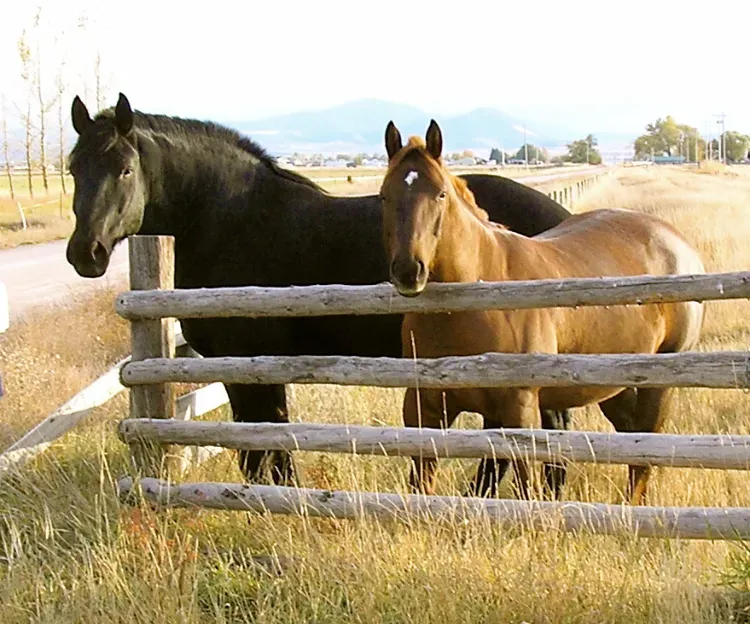
Identifying Fat Horses
These horses carry too much body fat. They are obese, and their strength-to-weight ratios will be low, so they will tire easily.
Remember, excess bulk does not make for strength or soundness.
Myth Busting
You can not make a slim horse stronger by feeding him more than he requires. If a slim horse is overfed he will not become stronger. Here are some common mistakes:
- Broad loins are always a sign of strength
- A large apple-shaped bottom means strong quarters
- A fat neck makes a horse stronger.
Strong horses have wide hips and wide loins. This is due to their frame size and not the result of excess fat. A large apple-shaped bottom is caused by excess fat. This does not indicate strength. A fat neck can not make a horse strong. It increases the weight carried on his forehand and predisposes him to tire more easily.
Accurately Fat Score your Horse on a 6-point scale
Remember, horses should fat score between 2.5 and 3 on a 6-point scale. A score greater than 3.5 is a significant health risk. Now be honest about your horse and if he is overweight address the issue.
Increase your Horse’s Weight to Strength Ratio
Horse strength depends on conformation and frame size. However, for any horse, the ratio between the circumference of their front cannon bone and their body weight affects their strength.
A horse will be at its strongest when it is not burdened by carrying too much body weight.
A Rider may look Smaller in relation to their Fat Horse
It is true that a rider will look smaller on an overweight horse. However, the horse will find it harder to carry the rider.
Words of wisdom
Always keep your horse slim and he will serve you better.
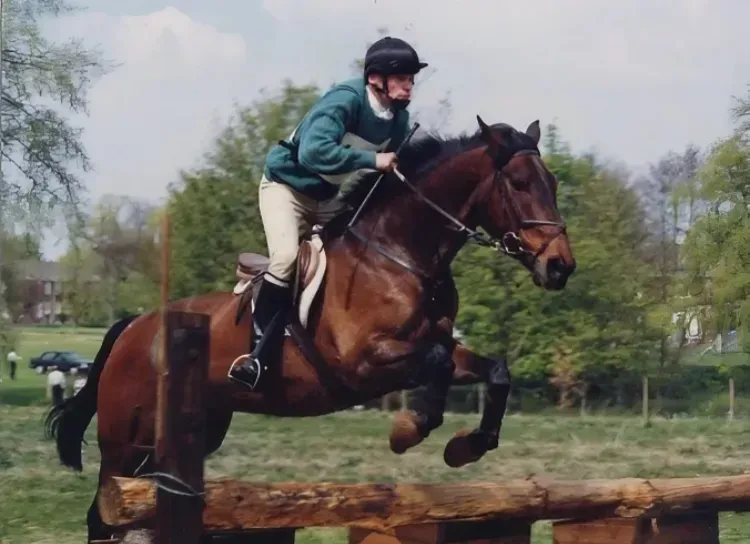
Example 01
This 15.3hh horse easily carried his 170-pound Rideout rider. The horse scores 3 on a 6-point fat scale.
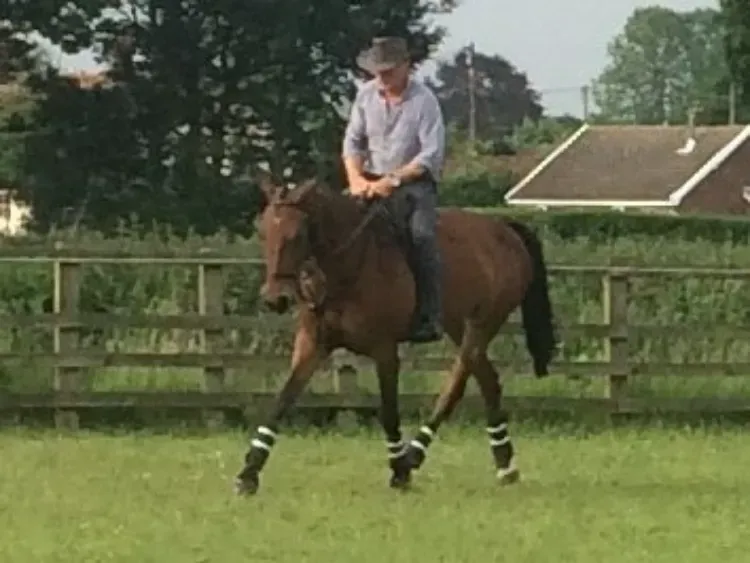
Example 02
This 15.1hh horse easily carried the same 170-pound Rideout rider. The horse scores 3 on a 6-point fat scale and weighs 970 pounds.
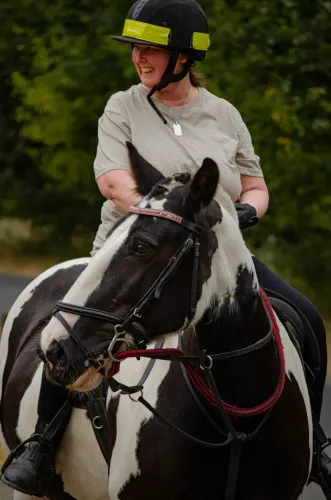
Article Suggestion
Think you are Too Heavy to Ride Horses?
